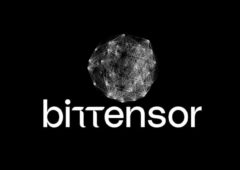What the U.S. Blockchain Act Means for Crypto’s Future
29.06.2025 18:00 2 min. read Kosta Gushterov
The U.S. House of Representatives has taken a major step toward digital asset regulation by passing the Deploying American Blockchains Act of 2025.
Approved on June 23 with broad bipartisan support, the bill now moves to the Senate for further debate. Co-sponsored by Representatives Kat Cammack and Darren Soto, the legislation outlines a national strategy to strengthen U.S. competitiveness in blockchain and Web3 technologies. As China accelerates its progress in digital finance, U.S. lawmakers are signaling a desire to catch up—and lead.
Commerce Department to Spearhead Blockchain Strategy
Under the bill, the Department of Commerce will take charge of developing a unified federal blockchain roadmap. It will serve as the primary advisor to the President on matters concerning distributed ledger technologies, tokenization, and crypto policy. The act also authorizes a seven-year blockchain deployment program, which will be funded and monitored by Congress. Within six months, advisory committees will be tasked with issuing detailed guidance on decentralized identity, cybersecurity, anti-fraud protections, and supply chain resilience. These efforts aim to lay a durable foundation for both government and private-sector blockchain applications across the country.
Urgency to Compete With China on Digital Assets
Lawmakers have emphasized the need to counter global adversaries in the race for digital dominance. Representative Soto described the legislation as critical to ensuring the U.S. leads rather than follows in blockchain adoption. His co-sponsor, Kat Cammack, warned against letting countries like China dictate the rules of the digital future. The bill reflects a growing sense of urgency in Washington, aiming to spark innovation, attract long-term investment, and reinforce trust in the broader Web3 ecosystem.
What’s Next for the Blockchain Bill
The Senate will now review the measure, starting with committee discussions before moving to a full vote. If approved, the bill will proceed to the President’s desk for final approval. Industry leaders are closely watching its progress, anticipating a regulatory shift that could unlock major opportunities in tokenization, digital identity, and decentralized finance. Many believe this legislation marks a pivotal moment that could elevate the United States as a global hub for blockchain innovation.
-
1
Cardano and Ethereum Lead in Developer Activity as GitHub Commits Surge
14.07.2025 12:00 1 min. read -
2
German State-Owned Development Bank Issues €100 Million Blockchain Bond
11.07.2025 7:00 2 min. read -
3
Ripple Powers UAE’s First Tokenized Real Estate Project via XRPL
16.07.2025 21:00 2 min. read -
4
Tether Ends Support for Five Blockchains in Infrastructure Shift
12.07.2025 11:30 2 min. read -
5
BNB Chain Upgrades and Token Delistings Reshape Binance Ecosystem
16.07.2025 22:00 2 min. read
Wall Street Moves Onchain: Tokenized Finance Enters its Breakout Era
The tokenization of real-world assets (RWAs) has entered a new phase in 2025—no longer a concept, but a confirmed trajectory.
Vietnam Launches National Blockchain to Digitize Government and Citizen Services
Vietnam has officially launched NDAChain, a national blockchain infrastructure designed to underpin its digital transformation strategy.
Solana Plans 66% Block Upgrade to Boost Network Capacity
Solana developers have introduced a new proposal aimed at pushing the network’s performance even further.
Chainlink Partners With Westpac and Imperium to Tokenize Finance in Australia
Chainlink has announced a major institutional partnership with Westpac Institutional Bank and Imperium Markets as part of Project Acacia—a joint initiative involving the Reserve Bank of Australia and the Digital Finance Cooperative Research Centre (DFCRC).
-
1
Cardano and Ethereum Lead in Developer Activity as GitHub Commits Surge
14.07.2025 12:00 1 min. read -
2
German State-Owned Development Bank Issues €100 Million Blockchain Bond
11.07.2025 7:00 2 min. read -
3
Ripple Powers UAE’s First Tokenized Real Estate Project via XRPL
16.07.2025 21:00 2 min. read -
4
Tether Ends Support for Five Blockchains in Infrastructure Shift
12.07.2025 11:30 2 min. read -
5
BNB Chain Upgrades and Token Delistings Reshape Binance Ecosystem
16.07.2025 22:00 2 min. read


